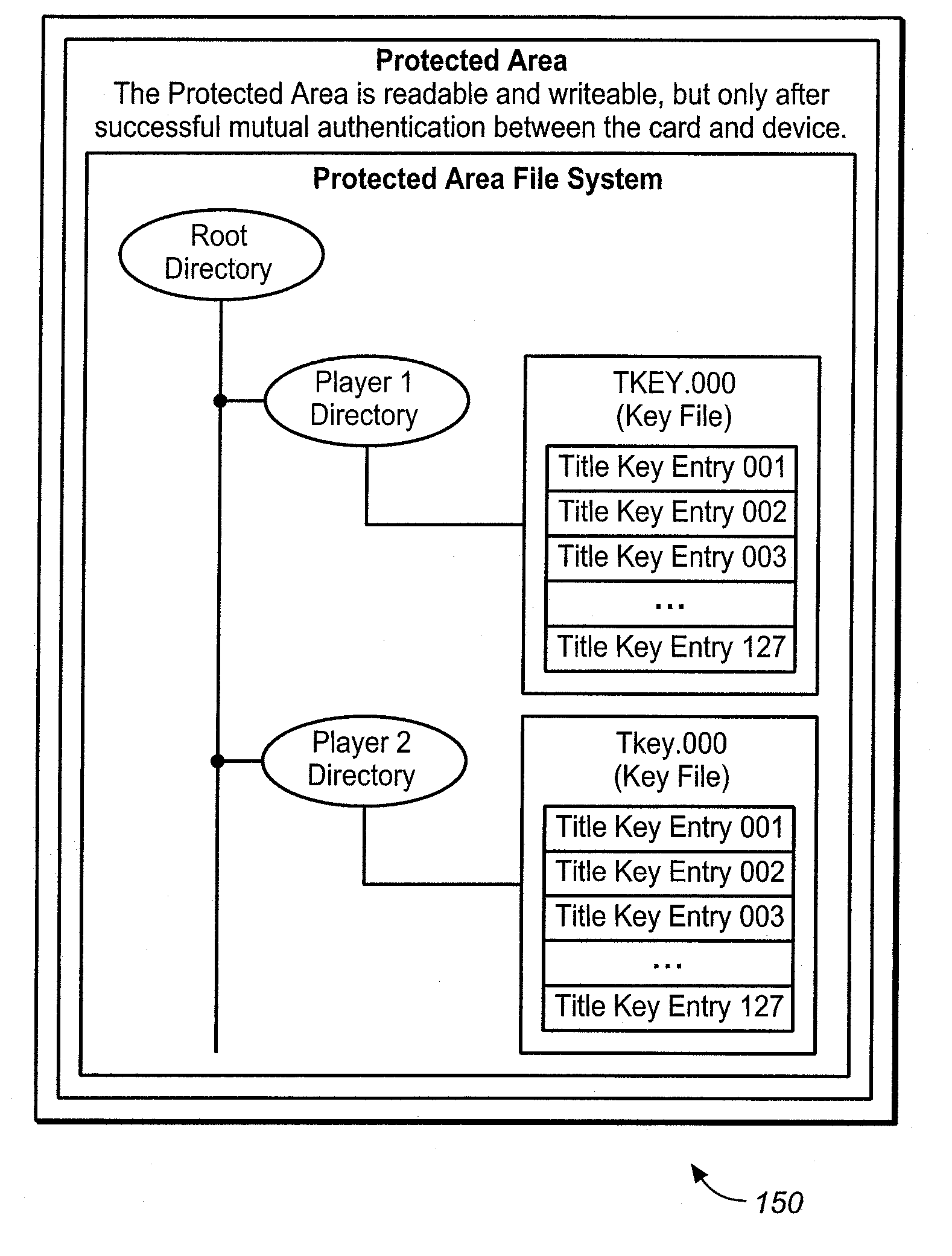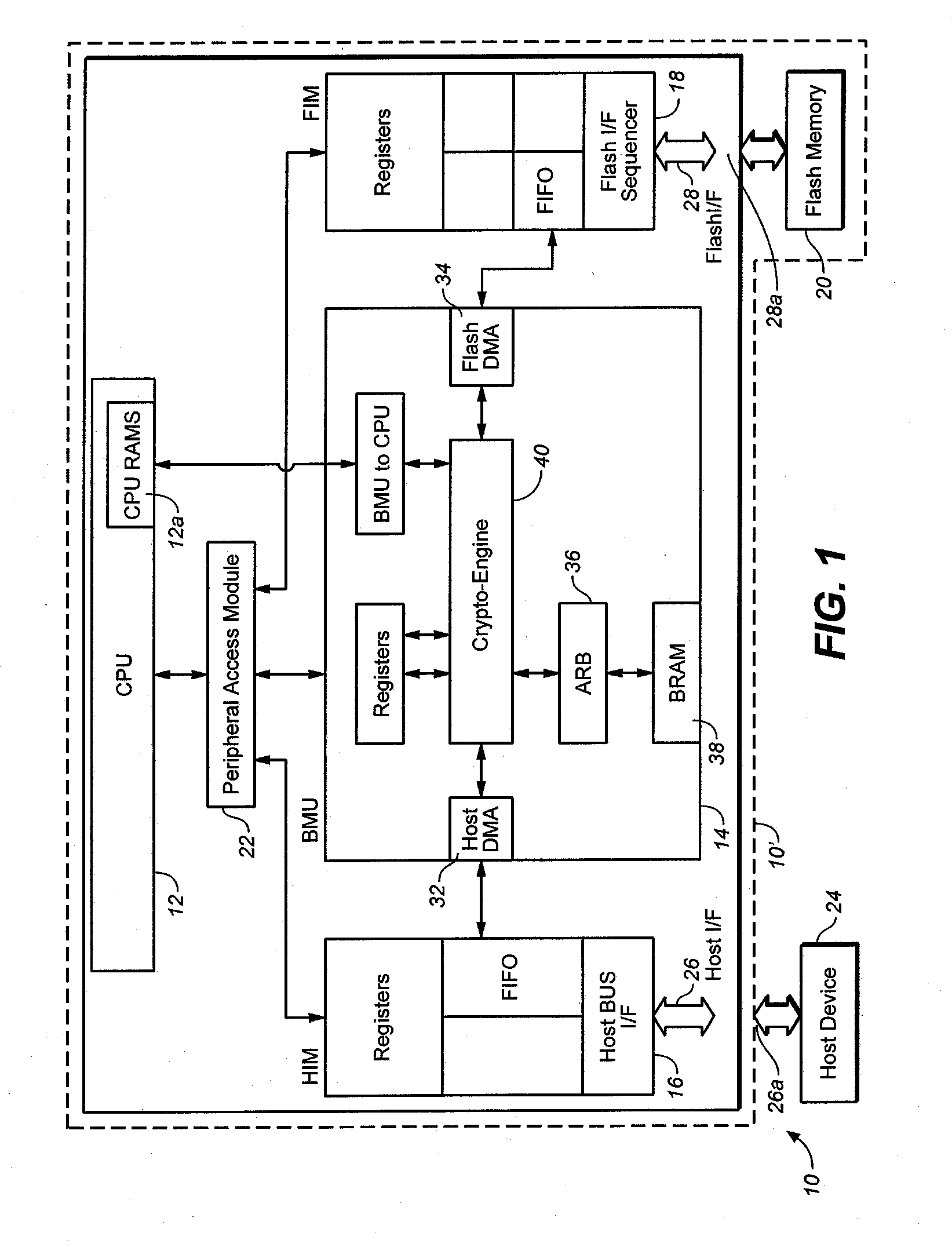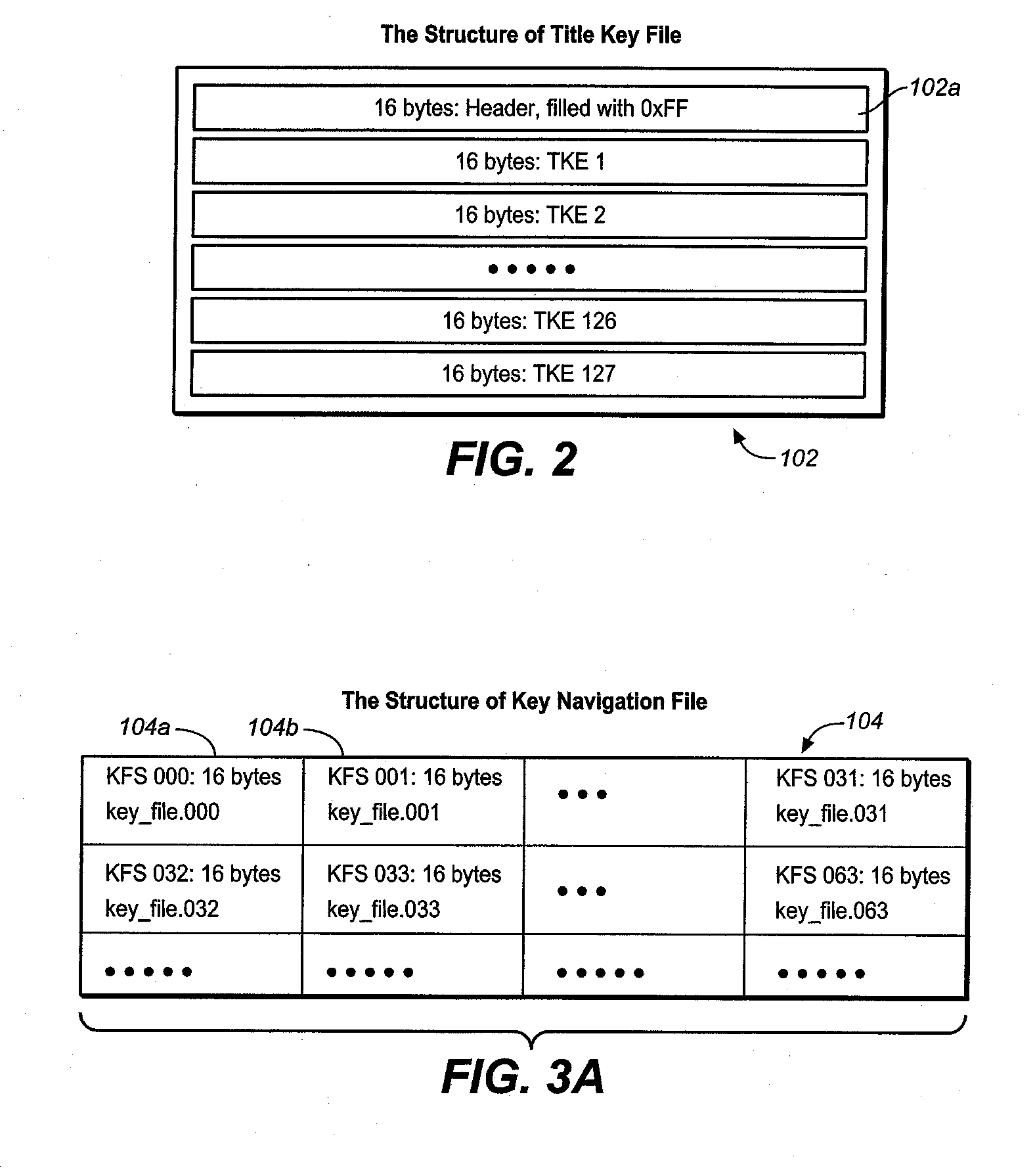Method for managing keys and/or rights objects
a technology for managing keys and/or rights objects, applied in the field of encryption/decryption systems, can solve the problems of none of the above systems being entirely satisfactory, each has its limitations, etc., and achieve the effect of facilitating the key management and facilitating the process of locating
- Summary
- Abstract
- Description
- Claims
- Application Information
AI Technical Summary
Benefits of technology
Problems solved by technology
Method used
Image
Examples
Embodiment Construction
[0050] An example memory system in which the various embodiments of the present invention may be implemented is illustrated by the block diagram of FIG. 1. As shown in FIG. 1, the memory system 10 includes a central processing unit (CPU) 12, a buffer management unit (BMU) 14, a host interface module (HIM) 16 and a flash interface module (FIM) 18, a flash memory 20 and a peripheral access module (PAM) 22. Memory system 10 communicates with a host device 24 through a host interface bus 26 and port 26a. The flash memory 20 which may be of the NAND type, provides data storage for the host device 24. The software code for CPU 12 may also be stored in flash memory 20. FIM 18 connects to the flash memory 20 through a flash interface bus 28 and port 28a. HIM 16 is suitable for connection to a host system like a digital camera, desk top or portable personal computer, personal digital assistant (PDA), digital media player, MP-3 player, video game players and cellular telephone or other digita...
PUM
 Login to View More
Login to View More Abstract
Description
Claims
Application Information
 Login to View More
Login to View More - R&D
- Intellectual Property
- Life Sciences
- Materials
- Tech Scout
- Unparalleled Data Quality
- Higher Quality Content
- 60% Fewer Hallucinations
Browse by: Latest US Patents, China's latest patents, Technical Efficacy Thesaurus, Application Domain, Technology Topic, Popular Technical Reports.
© 2025 PatSnap. All rights reserved.Legal|Privacy policy|Modern Slavery Act Transparency Statement|Sitemap|About US| Contact US: help@patsnap.com



